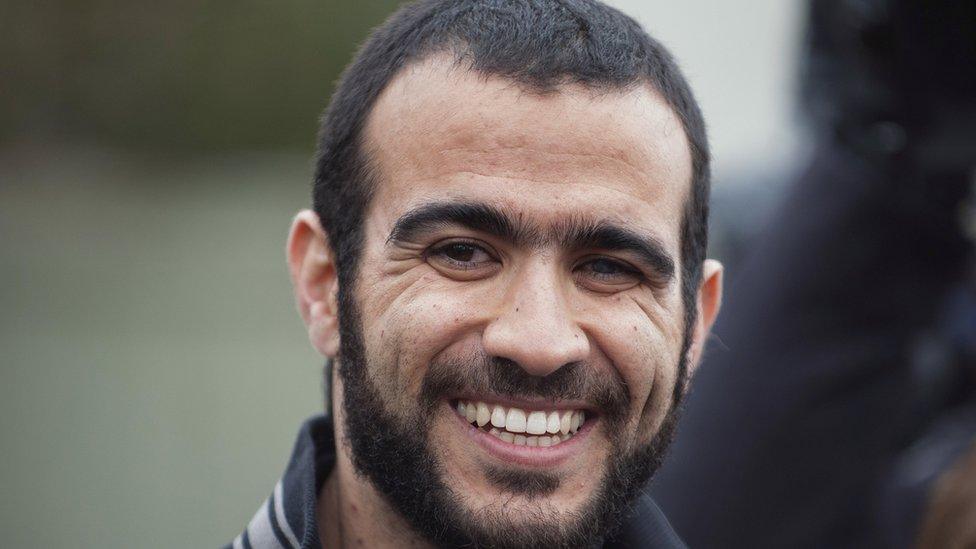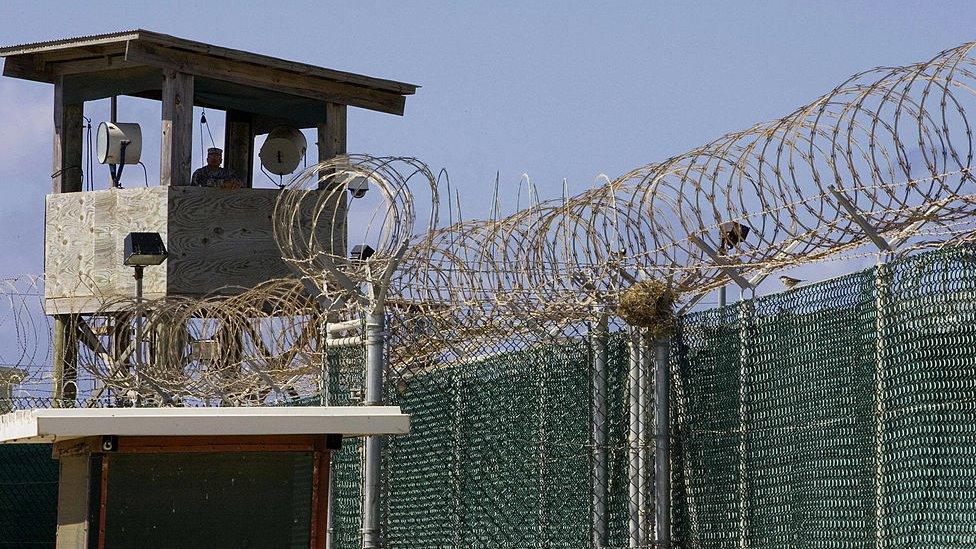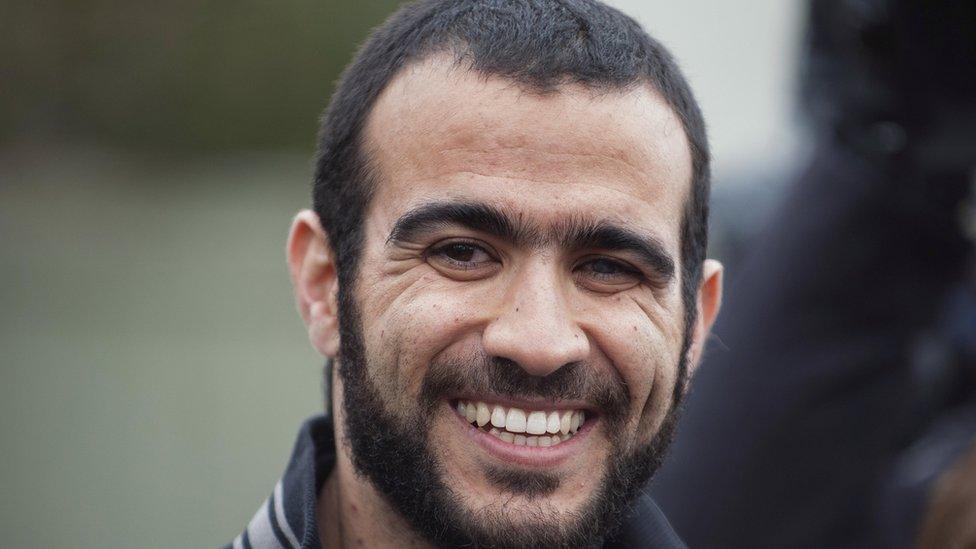Trudeau feels blowback from $8m Khadr settlement
- Published

Omar Khadr was repatriated to Canada in 2012
Fifteen years after being captured, Omar Khadr is still a lightning rod for the Canadian conscience.
Prime Minister Justin Trudeau's decision to give C$10.5m ($8m; £6m) to the former Guantanamo Bay prisoner has proved divisive, even in his own party.
Meanwhile, a lawsuit from an American soldier's widow continues to draw the case out.
Canadian-born Khadr, 30, was captured in 2002 in Afghanistan at the age of 15, and spent a decade in Guantanamo.
He pleaded guilty to throwing the grenade that killed US Army Sgt Christopher Speer in 2010, but later recanted, saying he only confessed so that he could be released from Guantanamo and transferred to a Canadian prison.
He was released on bail in 2015.
That same year, a Utah judge awarded Mr Speer's widow Tabitha Speer $134m in a wrongful-death suit. Payment is pending an Ontario court decision on whether the lawsuit is enforceable, based on jurisdictional concerns.
After Khadr's settlement was announced, Mrs Speer petitioned an Ontario court to freeze his assets until the jurisdictional matters are decided in court. The Ontario judge called this request "extraordinary" and refused to grant the injunction.
Khadr has been a divisive figure in Canada from the start - some say he was a child soldier who was wrongfully imprisoned and mistreated in Guantanamo Bay.
Others, including former Prime Minister Stephen Harper, called him a terrorist and a traitor and believe that he should have been prosecuted to the full extent of the law.
Canada's Supreme Court twice found that the Canadian government had violated his constitutional rights and Khadr subsequently sued the Canadian government for C$20m.
Last week, the Canadian government offered an apology and a multi-million dollar settlement in recompense. Although some have applauded Mr Trudeau's decision to settle with Khadr, many others have voiced their displeasure.
Veterans in Halifax, Nova Scotia, protested against the settlement during a city parade, and called the large sum a "slap in the face".
"My son who served over there is now released with PTSD. He gets support from VAC (Veterans Affairs Canada), but not enough. He didn't get $10.5 million," said veteran Jay Tofflemire.

An online poll of 1,512 Canadians conducted by Angus Reid between July 7 and 10 found that more than 70% of Canadians thought Trudeau should have fought the settlement in court.
Most worrying for Mr Trudeau is that 61% of Canadians who said they voted for him in 2015 also disagreed with the settlement.
Howard Anglin, a former policy advisor to Mr Trudeau's predecessor, Stephen Harper, told the BBC this decision could be turned against him in future elections.
"I can only assume they weren't aware of how badly this would play with Canadians," he said.
Mr Anglin said even if Khadr was mistreated in Guantanamo Bay, it's a hard to understand why Canadian tax dollars should go towards his settlement.
"Canada's involvement in this is so attenuated, so vanishingly attenuated, that we should not be the ones paying for this," he said.
But other legal experts disagree.
"Blame-throwing against either the Supreme Court or the government, or both, is easy when legal and constitutional choices are in fact limited or non-existent," Eugene Meehan, a lawyer and former legal officer at the Supreme Court told the BBC in an email.
Mr Meehan cites the case of Ivan Henry, who was awarded C$8m in 2016 at trial for being wrongfully convicted and imprisoned for almost 27 years. Although Khadr's case is not identical, he said, it's reasonable to guess that his settlement at trial would also be in the millions.
With legal costs defending the government's treatment of Khadr already mounting to millions, Meehan thinks the settlement may have just been the most practical course of action.
"The practical legal bottom-line here is: pay now or wait and pay more later - the same choice we all make when deciding to go to the dentist," he said.
- Published7 July 2017

- Published4 July 2017
